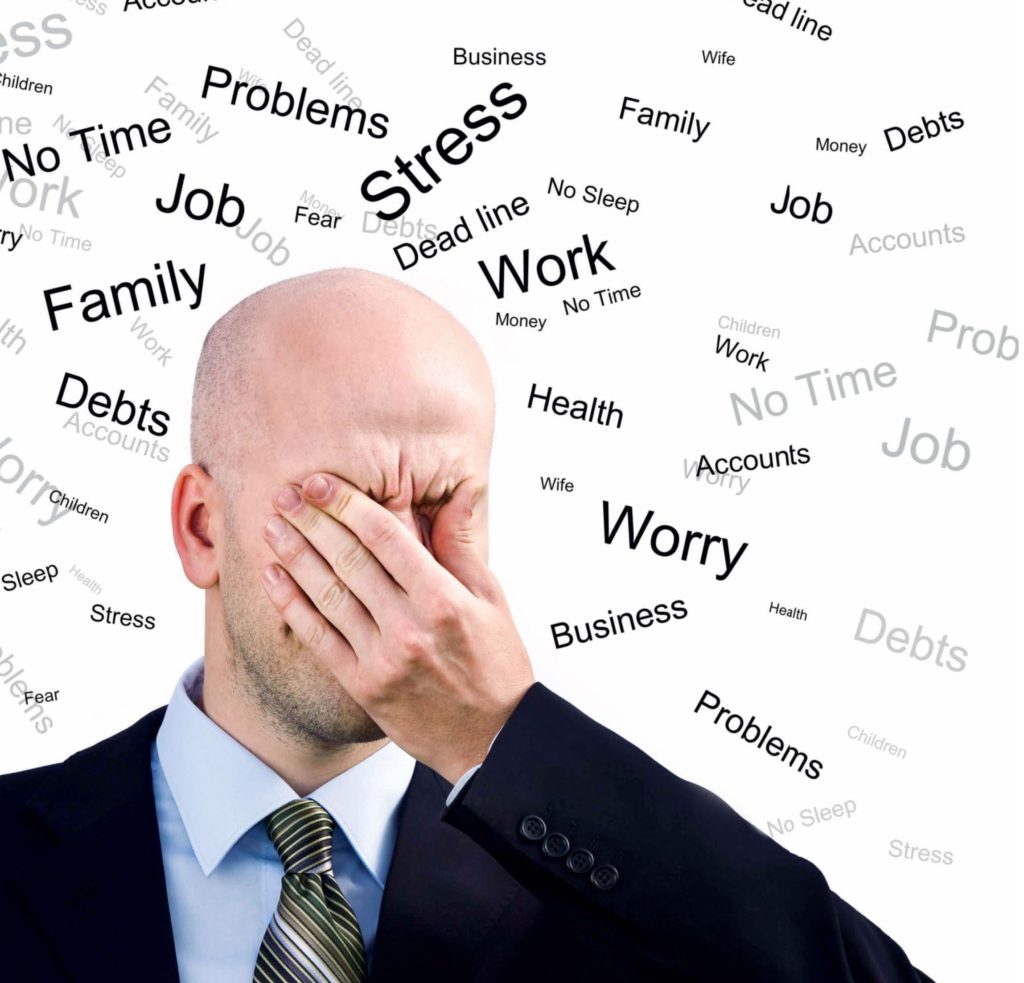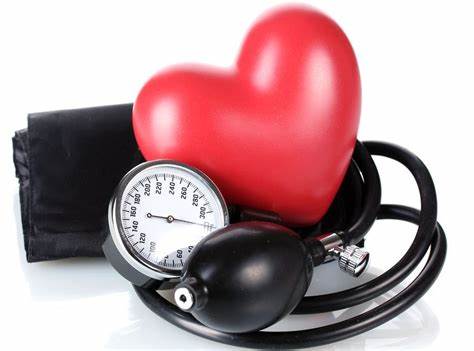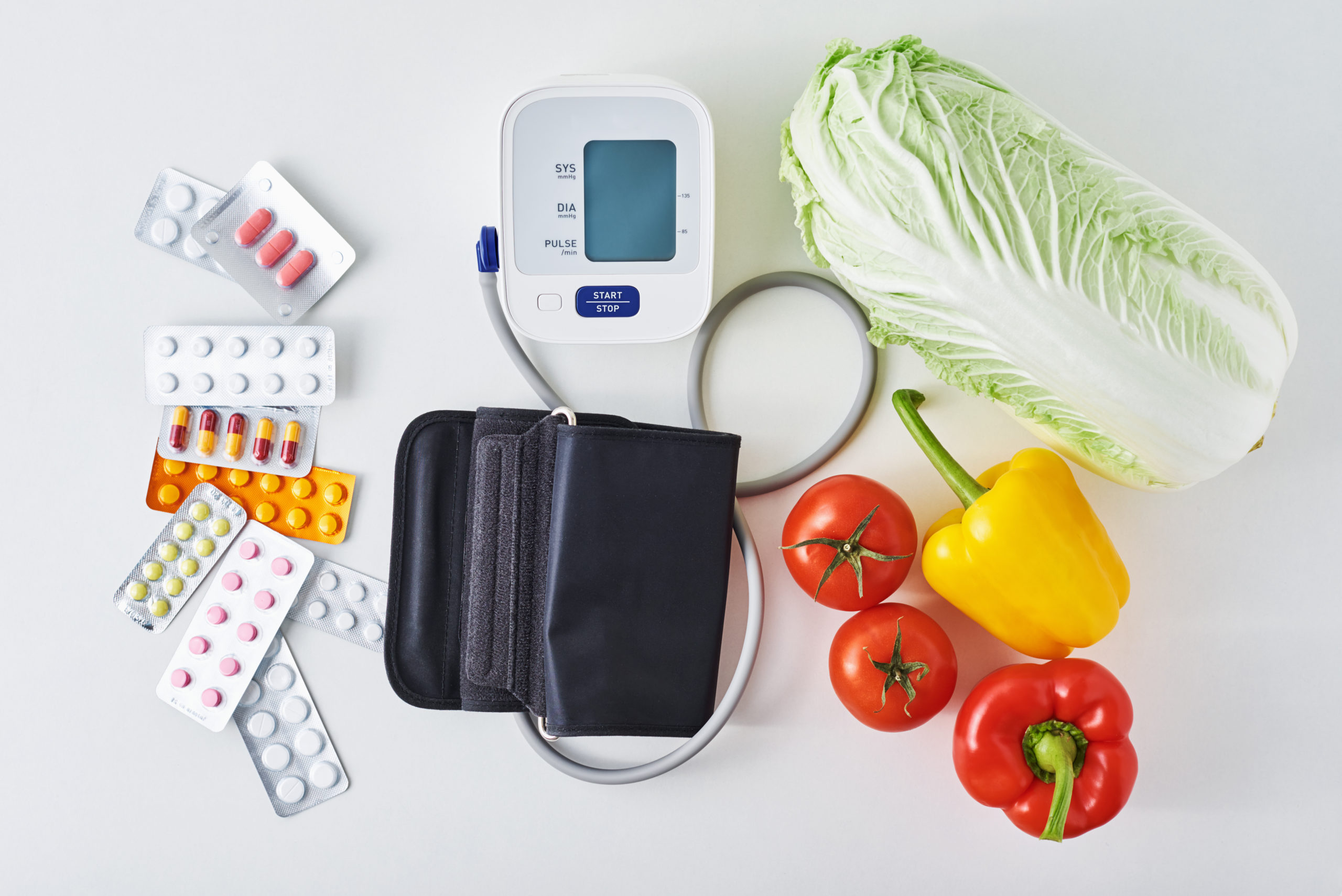How High Blood Pressure Causes Stress
High Blood Pressure and Stress Are Real
It is a well-known fact that certain stress levels can cause high blood pressure. But what about the opposite? Can high blood pressure cause stress? Let’s look at how high blood pressure and stress are linked together to learn how high blood pressure causes stress.
Like most people, I have had to deal with different stress levels during my life. Several years ago, not long after I was married, I remember getting headaches and dizziness every day as soon as I walked into work. When I went to see the company nurse, my blood pressure was always very elevated.
I did some research and learned that stressors, which are the individual situations that cause stress in your life, can pile up until you feel their effects physically.
At that time, I had a lot going on. My wife was pregnant, and our search for a new home wasn’t going as planned. I worked several hours a week and went to school in the evening to pursue my bachelor’s degree in engineering. Consequently, every day I walked into my place of work, it was like the straw that broke the camel’s back, causing headaches, shortness of breath, and high blood pressure.
The Link Between Stress and High Blood Pressure

High blood pressure, or hypertension, known as the silent killer, is responsible for millions of deaths worldwide yearly. According to medical research, there is a strong connection between stress and high blood pressure.
We know that stress causes high blood pressure; therefore, people with a lot of stress in their daily lives will likely temporarily end up with high blood pressure. Ignoring it may result in a more permanent condition or even heart disease.
But what if you already have high blood pressure? Does this increase your stress levels so much that it is more difficult to control or reduce your high blood pressure? Before we answer that, let’s examine how stress affects us.
Stress: What it is and How it Affects Your Body
Stress, a feeling of emotional or physical pressure or tension, is a risk factor for hypertension. It can raise its ugly head from any event or thought that makes you feel upset, angry, irritated, aggravated, annoyed, or nervous.
Examining How High Blood Pressure Causes Stress

Stress can come from family, home life, work, your commute to work, road rage from bad drivers, your boss, your co-workers, your finances, and many other factors. The list could go on for many pages.
If you have high blood pressure, you are likely to worry more about your health than others who don’t have it. This worrying is a form of stress that, when added to other stressors in your life, can raise your blood pressure even higher. Keep reading to discover how high blood pressure causes stress.
Here is a list of things you worry about when you have high blood pressure.
- You feel trying to change is a lost cause. One common reason high blood pressure causes stress is when high blood pressure and heart disease are in our families. High blood pressure and heart disease can go back multiple generations. As a result, the subconscious thoughts you have place doubt in your mind. If this happens, you can feel powerless when trying to control your high blood pressure and improve your health, resulting in added stress.
- Concerns about money. Some lifestyle changes you must make when dealing with high blood pressure may add costs to your monthly budget. Depending on your finances, this could be cause for worry. Financial struggles are a leading cause of stressors today and play a significant role in how high blood pressure causes stress.
- You are worried about eating the wrong foods. One of the most critical factors related to high blood pressure is your diet. You might struggle to eat meals low in fat and sodium consistently. As a result, you feel you are letting yourself down and have no self-control, thus adding more mental stress and potentially increasing your blood pressure.
- You worry that you can no longer satisfy your spouse. High blood pressure is the leading cause of erectile dysfunction in men. Medications are available to help this condition, but their results can vary. You may worry that you can no longer please your spouse or significant other, resulting in constant worrying and stress and another reason high blood pressure causes stress.
- You worry that your vision will continue to get worse. In addition to causing heart and kidney problems, untreated high blood pressure can impair your vision and lead to eye disease. Hypertension can damage the retina’s blood vessels, located at the back of the eye and where images focus. Worrying about your vision getting worse can become a huge stressor in your life.
7 Tips to Reduce or Eliminate Harmful Stress

We know the various reasons why high blood pressure causes stress. This stress you have from dealing with high blood pressure can make your blood pressure worse if you don’t learn how to deal with that stress.
Effective stress management can save your life. Develop daily habits to help you manage stress and avoid the silent killer. People have learned how to deal with stress and the things that cause it.
This could mean getting involved in a hobby, spending time in the garden, or giving yourself time and space. There are many ways to deal with or lessen stress. The following seven ways to reduce or eliminate stress apply to all types of stress, including stress caused by high blood pressure.
1. Participate in good cardiovascular exercise for at least 30 minutes a day on most days of the week. I work out because it is effective. Cardiovascular exercise aims to raise your heart rate to a point where you start to sweat. Endorphins and other hormones are released during exercise. Endorphins improve your mood and help you forget about stress.
You might be able to set aside some time in the early morning hours when no one else is awake in your house. Decide on a time that suits you. Workplace exercises like sit-ups and squats can be beneficial. If you only have 30 minutes for lunch, skip the sandwich and chips in favor of a protein shake and a stroll around the neighborhood or building.
To boost your steps, use the stairs instead of the elevator. Include some yoga stretches; this can significantly help with stress reduction. The silent killer knows that you will be more difficult to attack if you work out.
2. As a relaxation strategy, use meditation to take a few minutes to sit down, close your eyes, and take slow, deep breaths. Your heart rate will slow down, and your blood vessels will enlarge and expand. Much like taking a minute to unwind by spending time with friends or significant ones to promote healthy and lasting relationships, doing this lowers blood pressure and lessens stress.
The silent killer does not want you to unwind or practice meditation. You can meditate at home or at work.

3. Practice good time management. Plan ahead, so you arrive early for your events. Prevent delays. Plan your time to complete all of your tasks, both at work and at home. Your stress level will decrease as you become more competent at juggling the demands of work and family. Planning your day and week in fifteen or twenty minutes will lessen stress significantly.
Create a schedule for the day and a “To Do” list. Make the items on that list a priority and complete them. Impose deadlines on yourself. Most tasks require a deadline to get completed.
Delegate responsibility; this strategy works both at home and work. Ask for assistance when you can. Often, it’s necessary to direct your significant other, your spouse, and your kids. Additionally, be aware that not everyone will complete a task the same.
4. Eat Healthy Food. I’ve mentioned before the importance of healthy eating. If you sometimes eat when stressed, make sure it is the proper type of food.
Eat less food that is heavy in sugar and fat. These foods increase your risk of being obese and contribute to other health issues.
They will also create a spike in your energy levels, followed by a crash. Ensure you have a lot of fresh produce on hand. Fiber bars make for a tasty snack. Make sure you have several healthier eating options available at home and work.
5. Get enough proper sleep. Most people do not get enough sleep. When people are already cranky from not getting enough sleep, stress makes them even more so. Stress can cause this lack of sleep, and lack of sleep can make anxiety worse. Start by taking care to prioritize good sleep.
Keep things that belong in the bedroom in the bedroom. You shouldn’t watch TV, use your phone, or work on your laptop while you’re in bed. There shouldn’t be any noise or other things going on.
When entering your bedroom, you should feel calm and ready to sleep. Good sleep habits will significantly impact your mood, mental health, and physical health as a whole. The silent killer takes advantage of your stress and lack of sleep to hurt you.
6. Don’t be a perfectionist. Perfectionism causes a lot of stress that doesn’t need to be there. Everyone has flaws. Don’t be hard on yourself if you set a goal and don’t reach it. It is okay. You beat yourself up if you don’t finish the tasks on your list. Stress makes people feel more anxious. Use those lists as a guide, and mark off each item as you complete it. You can set goals and reasonable deadlines for yourself.
On any given day, you may not be able to get something done because you are distracted by many things you didn’t plan for. You get down on yourself if you think people don’t like you.
Then you keep going over and over what you think you did wrong. Don’t try to be perfect; let go of the things you can’t change. The silent killer likes to take advantage of you when you’re not paying attention to your own needs.
7. Saying “No!” is okay. We often set goals for ourselves that are too high or not realistic. When people ask you to do things when you already have a list of things to do in order of importance, it adds to your stress.
Someone may ask you to help with your child’s sports, at your church, with a community group, or at other events. Have you got the time? And will it add stress to your life that could hurt your health? Someone suggested once, “Under-promise, and over-deliver.” I’ll add that you should only volunteer to help if you have time and don’t want to add more stress to your life.
The silent killer likes it when you are too busy or stressed out to take care of yourself.
We can’t change the fact that high blood pressure causes stress. Therefore, our best option is to reduce the daily stressors we experience. In other words, eliminate all of the everyday stressors that you can.
Stressful situations among family members or at work should not be allowed to carry on for very long. It may help to hold problem-solving sessions in either environment. It may help to work on negotiation skills. If there are certain things you are doing or allowing people to do to you that can be avoided, avoid those people—remove them from your life. When you have a choice, exercise it. If you can’t remove them, use some of the habits I shared to reduce your stress.
In Conclusion
We know that stress can cause high blood pressure. And now you understand how high blood pressure causes stress. As a result, high blood pressure and stress are closely linked together. We know that stress can cause your blood pressure to rise regardless of where the stress comes from. As stated in this article, people with high blood pressure have several things that may cause them to worry about and feel anxious. Consequently, they become stressed.
The good news is the mind can’t tell the difference between the different types of stress. Stress is stress and has the same effect on our bodies, whether it’s due to worrying about our health or having to work in a toxic environment every day.
In short, that is why it is beneficial to follow the steps to lower your stress laid out in this article. These steps should be part of the daily routine you follow to manage your high blood pressure. In other words, managing the stress caused by having high blood pressure will help keep your high blood pressure down. As a result, you will find your stress levels are lower as well.





